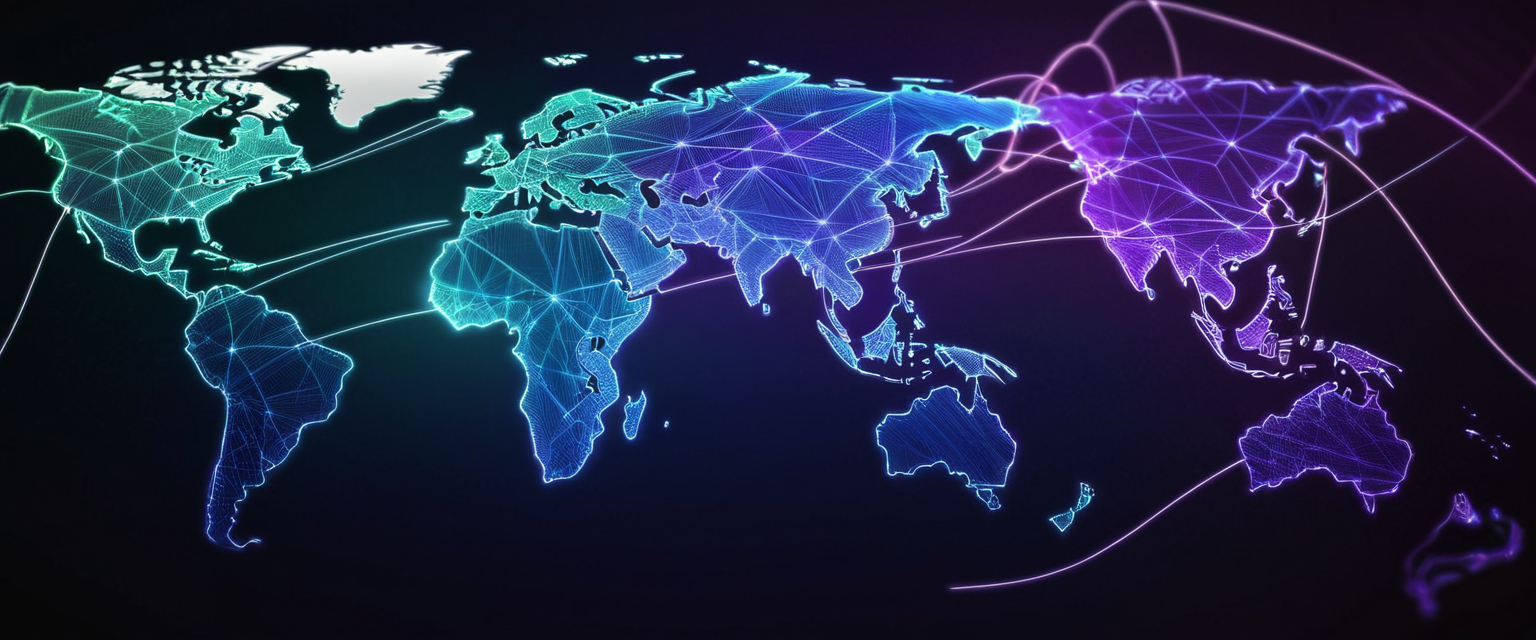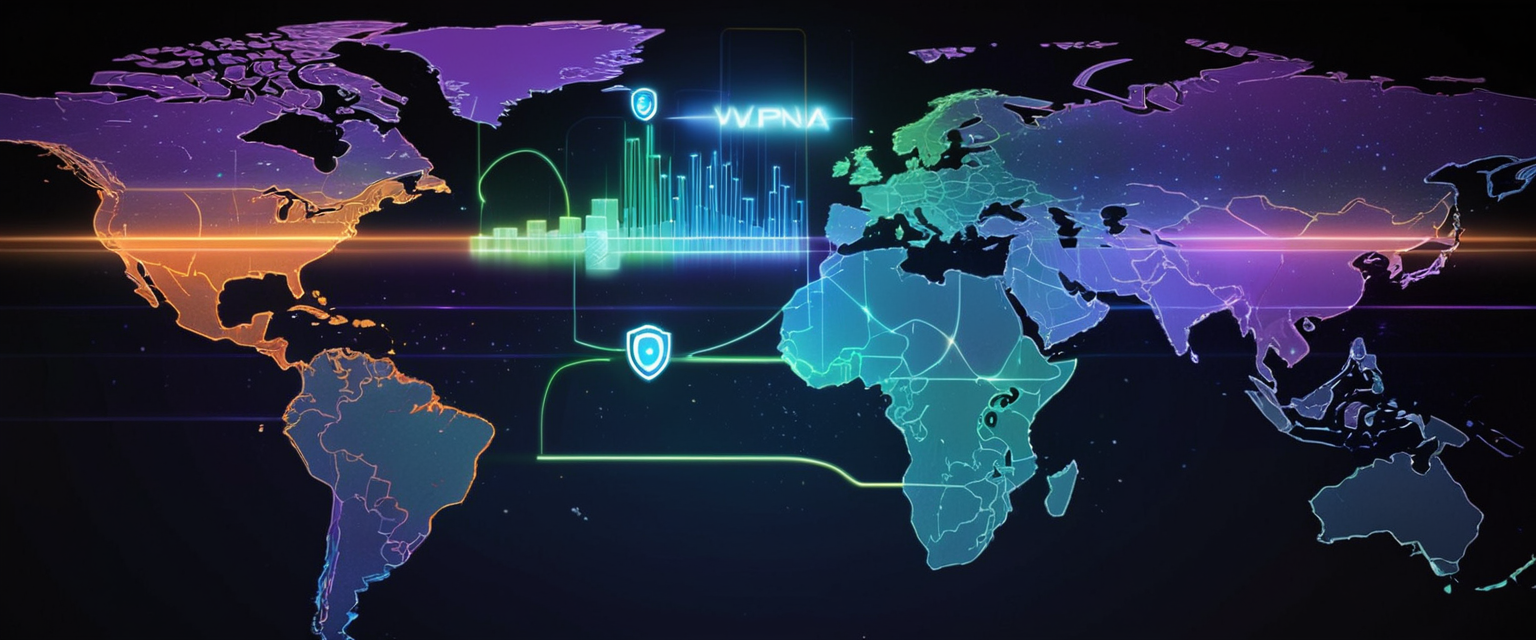
ChatGPT has emerged as one of the most widely utilized artificial intelligence applications globally, with over 120 million daily users relying on the platform for writing assistance, research, coding support, and creative endeavors. However, accessing this powerful tool presents significant geographical challenges, as numerous countries and institutions maintain restrictions that prevent users from engaging with the platform. The strategic selection of Virtual Private Network (VPN) server locations represents a critical factor in determining whether users can successfully bypass these restrictions and maintain consistent, uninterrupted access to ChatGPT. This comprehensive report examines the geographic landscape of ChatGPT availability, the technical infrastructure underlying the service, optimal VPN location selection strategies, and the evolving mechanisms through which OpenAI detects and manages VPN traffic to provide readers with a thorough understanding of how to navigate these complex access challenges in 2025.
The Geographic Landscape of ChatGPT Availability and Restriction
ChatGPT’s availability represents a patchwork of permissions and prohibitions across the globe, reflecting a complex interplay of governmental regulations, data privacy concerns, and content control mechanisms. Understanding which regions maintain official access to ChatGPT serves as the essential foundation for selecting appropriate VPN locations. According to OpenAI’s official documentation, ChatGPT is supported in well over one hundred countries and territories worldwide, spanning diverse regions from North America and Europe to parts of Asia, Africa, and South America. This extensive availability means that legitimate access pathways exist throughout most of the world, providing users with numerous options when selecting their virtual location through a VPN connection.
Conversely, certain nations have established explicit restrictions or outright bans on ChatGPT access, typically citing concerns about data privacy, national security, information control, and prevention of academic dishonesty. The countries and regions maintaining the most stringent restrictions include China, which enforces comprehensive internet censorship through its Great Firewall and blocks access to prevent exposure to information contradicting official state narratives. North Korea similarly maintains complete restrictions as part of its broader policy of limiting citizen access to external information and communications infrastructure. Iran, Russia, Egypt, Syria, Afghanistan, and the United Arab Emirates likewise restrict or block ChatGPT access, with motivations ranging from governmental control of narratives to concerns about national security and regulatory compliance. The Democratic Republic of Congo, South Sudan, Sudan, Yemen, Libya, and several other nations in unstable regions also face practical or deliberate restrictions on ChatGPT access. Additionally, some countries not maintaining complete bans nonetheless impose significant limitations, such as Hong Kong, where access may be intermittently restricted, and Belarus, where authorities actively work to block VPN usage alongside targeted website restrictions.
Beyond government-level restrictions, institutional blockers within individual countries present another substantial barrier to ChatGPT access. Schools, universities, and corporate workplaces frequently block ChatGPT to prevent student cheating, maintain employee productivity, and ensure compliance with organizational data protection policies. These institutional restrictions operate independently of national-level policies and may exist even in countries where ChatGPT enjoys official availability. The European nation of Italy briefly restricted ChatGPT in April 2023 due to data privacy concerns related to the General Data Protection Regulation (GDPR), though this restriction was subsequently resolved. Understanding this multifaceted landscape of restrictions—spanning governmental censorship, data privacy concerns, anti-cheating measures, and institutional policies—illuminates why strategic VPN location selection has become an essential skill for millions of ChatGPT users worldwide.
Understanding ChatGPT Server Infrastructure and Geographic Distribution
The physical location of ChatGPT’s underlying servers fundamentally influences the strategic considerations governing VPN server selection. According to multiple authoritative sources, ChatGPT’s primary infrastructure resides within the United States, specifically distributed across Microsoft Azure data centers located in key American cities. The major server locations for ChatGPT include facilities in Virginia (particularly in the Ashburn area), Texas (encompassing San Antonio, Dallas, and the Fort Worth region), California (concentrated around San Jose and the San Francisco Bay Area), and Washington State (including the Quincy and Redmond areas). This geographic concentration within the United States reflects OpenAI’s infrastructure strategy and has important implications for understanding latency considerations and optimal connection pathways.
While the primary servers remain United States-based, the technical architecture of Azure’s global infrastructure means that users accessing ChatGPT may be automatically routed to geographically distributed endpoints depending on their connection characteristics and the service’s load distribution algorithms. However, research and user experience consistently demonstrate that the fundamental authentication, processing, and primary data routing for ChatGPT occurs through United States-based infrastructure. Importantly, the latency impact of connecting to these distant servers typically remains minimal compared to the processing time required by ChatGPT itself to generate responses. One community discussion among developers noted that latency differences between connecting from different global locations to ChatGPT servers typically remain under one hundred milliseconds, while the time required for the model to generate responses to user queries invariably dwarfs network latency as the dominant factor affecting total response time. This means that connecting through a VPN server located geographically distant from the user’s actual position introduces negligible performance degradation, making location flexibility a practical reality rather than a performance constraint.
The infrastructure considerations become particularly important when evaluating the distinction between OpenAI’s cloud-based ChatGPT service and enterprise deployments. Organizations utilizing Azure OpenAI Service through dedicated enterprise arrangements benefit from private endpoint connectivity and network isolation capabilities that route all traffic through internal networks rather than across the public internet. For individual users accessing ChatGPT through the standard web interface, however, this enterprise-level network configuration remains unavailable, and all connections route through OpenAI’s standard infrastructure regardless of VPN server location selection. This understanding clarifies why VPN location choice, while important for bypassing geographic restrictions, has minimal bearing on performance characteristics or technical functionality.
Optimal VPN Server Locations for Unrestricted ChatGPT Access
The strategic selection of VPN server locations represents perhaps the single most important decision for users seeking reliable ChatGPT access across restricted networks and geographic regions. The research literature, industry guidance, and practical user experience converge on a remarkably consistent set of optimal server locations that maximize the probability of successful access while minimizing the risk of detection and blocking by OpenAI’s security systems. The United States emerges as the primary recommended location, offering multiple advantages including direct connectivity to ChatGPT’s primary server infrastructure, established compatibility with OpenAI’s systems, and the lowest likelihood of IP address blocking. When selecting a United States-based VPN server, users should prioritize providers offering diverse server selection across different American cities and regions, as widely used or oversubscribed servers may attract greater scrutiny from OpenAI’s abuse detection systems.
The United Kingdom represents a secondary but highly reliable option for VPN location selection, providing unrestricted ChatGPT access through fast and stable server infrastructure coupled with privacy-friendly legal frameworks that protect user data. The United Kingdom’s robust internet infrastructure, established data protection regulations, and lack of governmental restrictions on ChatGPT combine to make UK-based servers particularly reliable alternatives when US servers experience temporary blocks or overuse. Canada offers similar advantages to the United Kingdom, with high-speed connections, established infrastructure suitable for stable ChatGPT access, and geographic proximity to the primary US server locations that may provide marginal latency advantages for certain users. Germany occupies an important position in the European context, offering privacy-friendly infrastructure supported by strong data protection standards and full ChatGPT access without governmental or regulatory restrictions.
Singapore warrants particular attention for users located in Asia or seeking geographically diverse options, as it represents the most reliable option in the Asian region for achieving unrestricted ChatGPT access. Singapore combines fast and stable server infrastructure with an absence of governmental restrictions on AI tools and sophisticated technological capabilities that enable reliable VPN operation. Australia provides a viable option for users in the Oceania region, offering fast servers with stable ChatGPT access comparable to Western European and North American options. Collectively, these six locations—the United States, United Kingdom, Canada, Germany, Singapore, and Australia—emerge from the research literature, industry recommendations, and user experience as the most consistently reliable options for achieving unrestricted ChatGPT access through VPN connections.
Conversely, users must scrupulously avoid VPN server locations in countries where ChatGPT faces governmental bans or technological restrictions, as connecting through such servers introduces substantial risk of access failure. The countries explicitly recommended for avoidance include China, Russia, Egypt, Iran, and the United Arab Emirates. Connecting through VPN servers located in these jurisdictions does not provide any functional benefit for accessing ChatGPT, while simultaneously exposing users to the identical geographic restrictions they were attempting to bypass. The underlying reason for this counterintuitive outcome stems from the mechanisms through which OpenAI enforces geographic restrictions—the service does not simply block traffic originating from restricted countries but rather maintains allowlists of supported countries and territories. When a user connects through a VPN server located in a restricted country, OpenAI’s geolocation verification systems (which determine location based on the VPN server’s registration, IP address assignment, and related metadata) identify the connection as originating from a restricted jurisdiction and deny access accordingly. This technical reality means that selecting VPN locations outside both the user’s actual location and any restricted countries represents an essential prerequisite for successful ChatGPT access.

Technical Rationale and Mechanisms Underlying Optimal VPN Location Selection
The technical mechanisms governing why certain VPN locations succeed while others fail illuminates the strategic reasoning behind location recommendations. OpenAI maintains multiple overlapping systems designed to verify user location and prevent access from restricted jurisdictions. The primary system examines the geographic registration and IP assignment of the VPN exit point—essentially determining which country’s internet service provider allocated the particular IP address the user is presenting to ChatGPT. This geolocation identification system references multiple databases and analysis techniques to establish the likely geographic origin of an IP address, comparing this determined location against the official list of supported countries. When a user connects through a United States-based VPN server, their traffic appears to originate from a US Internet Service Provider, and geolocation verification returns a United States location matching one of the officially supported jurisdictions, enabling access authorization.
A secondary mechanism that influences optimal location selection involves OpenAI’s abuse detection and IP reputation systems. These systems monitor for patterns indicating bot activity, policy violations, or other misuse, flagging IP addresses (or ranges thereof) that exhibit suspicious characteristics. VPN servers located in heavily utilized locations that handle substantial traffic volumes from multiple concurrent users inevitably attract greater scrutiny from these abuse detection systems. Individual VPN exit points that become known to OpenAI through previous blocking actions may be added to IP-level blocklists, preventing any traffic from those addresses from accessing ChatGPT regardless of other factors. This dynamic means that VPN providers maintaining large, distributed server networks with diverse IP addresses face reduced risk of becoming subject to block-listing compared to providers operating smaller networks where particular exit points handle excessive traffic volume. The practical implication of this technical reality is that users should prioritize VPN providers offering extensive server selections in the recommended countries, as such providers distribute traffic across more IP addresses, reducing the probability that any individual address becomes overused and flagged for blocking.
A third technical consideration involves the stability and long-term reliability of particular VPN infrastructure. Some VPN providers maintain outdated infrastructure or rotate IP addresses unpredictably, introducing instability that can interfere with ChatGPT access. The most reliable location selections in the United States, United Kingdom, Canada, Germany, and Singapore consistently come from established VPN providers utilizing modern, professionally managed data center infrastructure designed specifically for reliable long-term operation. Providers like NordVPN, which operates over 7,900 servers across 126+ countries with robust security features and high-speed connections, maintain the infrastructural consistency that enables reliable ongoing access. Similarly, Surfshark’s combination of fast WireGuard protocol implementation, diskless server infrastructure, and third-party audit verification provides technical characteristics that support stable ChatGPT access. In contrast, free VPN services frequently operate unstable infrastructure that cannot reliably support ChatGPT access, often utilizing older protocols, limited server resources, and oversubscribed connections that trigger abuse detection mechanisms.
VPN Detection Mechanisms and OpenAI’s Anti-VPN Security Systems
Understanding how OpenAI detects and manages VPN usage represents essential knowledge for successfully utilizing VPNs to access ChatGPT. OpenAI has implemented increasingly sophisticated systems designed to identify when users are connecting through VPN services rather than direct internet connections, enabling the company to enforce geographic restrictions despite VPN usage. These detection mechanisms operate through multiple complementary approaches, none of which is foolproof but which collectively create substantial obstacles for users attempting to bypass restrictions. The first major detection approach involves analyzing IP address characteristics and known VPN provider signatures. OpenAI maintains databases and utilizes threat intelligence feeds that catalog IP address ranges known to belong to major VPN providers, datacenter operators, and residential proxy networks. When a request originates from an IP address matching known VPN provider signatures, OpenAI’s systems may flag the connection as VPN usage and impose additional restrictions or verification requirements.
The “unusual activity detected” warning that many ChatGPT users encounter when accessing the service through VPN connections represents one manifestation of this detection system. This security alert indicates that OpenAI’s systems have identified patterns suggesting either account compromise (such as login from multiple geographic locations in short timeframes), automated or bot-like activity, or potential account sharing and VPN usage. Users receiving these alerts often find that disabling their VPN connection resolves the warning, though this outcome effectively defeats the purpose of using a VPN for geographic access. The detection mechanism triggering these alerts operates by comparing user activity patterns against established baselines, flagging rapid changes in geographic location (detectable through shifting IP addresses and geolocation data), multiple simultaneous login sessions, or unusually high request volumes characteristic of automated tools rather than human usage.
A second detection approach involves analyzing traffic patterns and network behavior characteristics. Even when an IP address is not registered to a known VPN provider, deep packet inspection and behavioral analysis systems can identify traffic patterns consistent with VPN usage by examining encryption patterns, tunneling protocols, and traffic volume characteristics. This more sophisticated detection mechanism remains difficult for users to circumvent through conventional means, though certain advanced VPN obfuscation techniques (discussed in later sections) provide some defense against such analysis. The third detection approach OpenAI employs involves DNS analysis and browser fingerprinting. DNS requests sometimes reveal geographic inconsistencies or VPN usage indicators, while browser characteristics (user agent strings, installed extensions, timezone settings) can suggest VPN usage or indicate account sharing across devices. Users experience this detection when encountering CAPTCHA challenges, account verification requirements, or explicit warnings stating “turn off VPN to access ChatGPT”.
A particularly important development in VPN detection involves OpenAI’s increasing deployment of Cloudflare protection services. Cloudflare operates as an intermediate security and content delivery layer between OpenAI’s infrastructure and users, providing DDoS protection, bot detection, and geographic access control. When accessing ChatGPT, users frequently connect through Cloudflare before reaching OpenAI’s actual servers, meaning that Cloudflare’s detection systems often intercede before OpenAI’s own security mechanisms. Cloudflare maintains sophisticated bot detection and VPN identification capabilities, sometimes preventing VPN connections at the Cloudflare layer before traffic ever reaches OpenAI’s systems. Users encountering “Error 1020 – Access Denied” messages are experiencing Cloudflare-level blocking based on VPN detection. This reality means that even perfectly legitimate ChatGPT access through appropriately selected VPN server locations can fail when Cloudflare’s security systems identify and block the VPN traffic before it reaches OpenAI’s infrastructure.
Common ChatGPT and VPN Access Errors: Causes and Technical Solutions
The practical experience of accessing ChatGPT through VPN connections frequently generates various error messages and access failures that require diagnostic understanding and strategic troubleshooting. The “ChatGPT unable to load site” error represents one of the most common failure modes, typically occurring when ChatGPT’s systems detect or block VPN IP addresses, recognize the VPN connection as originating from a restricted country, or encounter other network-level access restrictions. When users encounter this error, the recommended initial troubleshooting approach involves switching to a different VPN server within one of the recommended countries (United States, United Kingdom, or Canada proving most reliable), as particular VPN exit points may become temporarily blocked while other servers within the same provider’s network remain functional. The cache-clearing and browser management techniques recommended by OpenAI support documentation—specifically removing cached cookies and browsing data—often resolve loading errors related to stale session information.
The “turn off VPN to access ChatGPT” message indicates that OpenAI has explicitly detected VPN usage and flagged the connection as suspicious based on security policies. When users receive this explicit warning, several diagnostic approaches prove effective. First, attempting connection through a different VPN server sometimes succeeds, as OpenAI may be blocking a particular VPN provider’s exit point rather than all VPN traffic universally. Second, waiting several hours or days sometimes allows temporary blocks to expire, as many security blocks implement automatic expiration timers. Third, clearing browser cookies, enabling two-factor authentication on the OpenAI account, and demonstrating legitimate usage patterns across several sessions sometimes restores access. Some users report that switching from using a shared VPN exit point to a dedicated IP address—which presents as an individual user’s consistent IP rather than a shared proxy serving multiple simultaneous users—reduces triggering of the VPN-specific block, though this approach introduces additional expense.
Error 1020 – Access Denied typically indicates Cloudflare-level blocking. When encountering this error, switching VPN locations to an entirely different geographic region (for example, moving from a United States server to a United Kingdom or Canadian server) often resolves the blocking, as Cloudflare applies geographic-level and provider-level filtering that may affect some servers while leaving others functional. Attempting access from a non-VPN connection to rule out VPN-specific blocking proves helpful for diagnostic purposes. Clearing all browser cache, cookies, and cached data before attempting access through the VPN often removes stale blocking indicators that may persist in browser-stored state information. Users experiencing persistent Error 1020 blocking should verify that they are not using datacenter proxies, as Cloudflare maintains particularly aggressive filtering against datacenter IP ranges compared to residential IPs.
The “ChatGPT unable to verify you are human (CAPTCHA loops)” error indicates that ChatGPT has flagged the VPN IP as suspicious and is implementing additional verification measures. Users encountering this error should attempt connection through alternative VPN servers, use dedicated residential IP addresses rather than shared proxy points, or take breaks of several hours between connection attempts to allow automatic security cooling-off periods to expire. Changing both the VPN server location and disabling unnecessary browser extensions often helps resolve persistent CAPTCHA loop problems. “ChatGPT keeps disconnecting or loading slowly” errors typically indicate that the selected VPN server operates at significant geographic distance from the user’s actual location or suffers from inherent speed limitations. Users experiencing these performance issues should connect to the nearest available unblocked country or switch to a higher-speed VPN protocol such as WireGuard when available through their VPN provider.

Comparative Analysis of VPN Provider Characteristics and Recommendations
The selection of which specific VPN provider to utilize represents a critical companion decision to choosing optimal server locations. Not all VPN providers maintain equal technical capabilities, reliability, or suitability for accessing ChatGPT in restricted environments. NordVPN emerges from multiple independent reviews and user feedback as the most effective VPN for ChatGPT access, offering 7,900+ high-speed servers distributed across 126+ countries. The service implements robust encryption, maintains a strict audited no-logs policy, offers a kill switch to prevent accidental IP leaks, and provides DNS leak protection critical for maintaining geographic spoofing accuracy. NordVPN’s infrastructure includes diskless servers that prevent data retention on physical hardware, and the service has completed full third-party audits validating its security claims. The provider offers a 30-day money-back guarantee, reducing risk for users evaluating the service.
Surfshark provides a compelling alternative for users prioritizing affordability without sacrificing performance, offering unlimited simultaneous device connections at competitive pricing starting at $2.49 per month when selecting longer subscription terms. The service implements the modern WireGuard protocol, operates diskless servers, and maintains an audited no-logs policy. Surfshark’s combination of extensive server network (100+ countries), strong encryption, and feature parity with more expensive competitors makes it an excellent choice for budget-conscious users, though the service maintains a somewhat smaller total server count compared to industry leaders. ExpressVPN stands out for exceptional performance in restrictive environments, with particular strength in bypassing advanced censorship mechanisms in countries like China where basic VPN detection and blocking systems prove insufficient. The service implements the Lightway protocol for improved connection speeds and maintains consistent performance across its global network, though pricing typically exceeds competitors at around $12.95 per month for month-to-month billing.
CyberGhost emphasizes user accessibility and beginner-friendly interface design, offering pre-configured server profiles for specific use cases and one-click connection features that simplify VPN setup. The service provides a generous 45-day money-back guarantee, demonstrating confidence in service quality. However, CyberGhost sometimes demonstrates reduced reliability compared to tier-one competitors in highly restricted geographic regions, and the service’s datacenter infrastructure shows occasional performance degradation under peak loads.
ProtonVPN maintains strong privacy credentials through Swiss-based operation and data protection standards, offering both free and premium tiers. The free plan provides limited server access but allows basic ChatGPT access testing before commitment. IPVanish rounds out the recommended provider list through offering unlimited simultaneous connections, no-logs policy, kill switch, and obfuscation features at competitive pricing. The service maintains servers in multiple countries and provides Socks5 proxy support alongside standard VPN protocols, offering technical flexibility that appeals to advanced users.
Conversely, free VPN services generally prove unsuitable for ChatGPT access despite superficial appeal. Free VPNs typically implement outdated OpenVPN protocol rather than modern, faster WireGuard or Lightway alternatives. They operate limited server networks (often three to five locations globally compared to hundred+ for premium services), resulting in overcrowded servers and traffic throttling during peak usage hours that generate the disconnection and slow performance errors discussed previously. Free VPN providers typically lack financial resources to maintain infrastructure, resulting in irregular maintenance, security vulnerabilities, and frequent server unavailability. Most critically, many free VPN providers implement logging policies contradicting privacy protection motivations and have been documented selling user data to third parties, undermining the fundamental purpose of VPN usage. The minimal monthly cost of premium VPN services ($3-15 per month) proves economically negligible compared to the reliability and security advantages, making premium services the substantially more prudent choice.
Residential Proxies, Obfuscation Technologies, and Advanced Access Methods
Beyond conventional VPN services, users experiencing persistent ChatGPT access challenges may benefit from understanding more specialized technologies and approaches. Residential proxies inherently mimic legitimate user connections since they literally operate on residential-class connections, making them substantially more difficult for OpenAI to detect and block compared to datacenter proxies. Major VPN providers increasingly distinguish between shared residential proxies (where multiple users share individual residential IPs through rotating pools) and dedicated residential proxies (where individual users receive exclusive IP assignments). For ChatGPT access specifically, residential proxies prove particularly effective when users encounter persistent blocks on datacenter proxy ranges, though the increased cost (typically 2-3x the expense of datacenter proxies) often discourages casual users.
Obfuscation technologies represent a complementary approach to bypassing VPN detection systems by disguising VPN traffic to appear as ordinary HTTPS web browsing rather than VPN protocol signatures. These stealth or cloaking technologies, implemented through various technical mechanisms, make VPN usage invisible to Deep Packet Inspection (DPI) systems that analyze traffic characteristics to identify encryption patterns and protocol signatures. The most common obfuscation approaches include Secure Socket Layer Tunneling Protocol (SSTP), which wraps VPN traffic in SSL encryption to mimic standard HTTPS connections; Shadowsocks (SOCKS5 proxy), an open-source server technology originally developed to bypass Chinese censorship and suitable for avoiding DPI detection; Stunnel, which adds additional encryption layers making VPN traffic indistinguishable from regular HTTPS; and OpenVPN Scramble (XOR obfuscation), which encrypts VPN metadata visible in data packets using XOR ciphering. Several premium VPN providers including VeePN implement obfuscated server modes specifically designed for high-restriction environments, providing stealth-capable connection options alongside conventional VPN infrastructure.
Obfuscated VPNs prove particularly valuable when users encounter institutional restrictions rather than geographic limitations, as many school and corporate networks implement DPI-based filtering specifically targeting VPN protocol signatures. By rendering VPN traffic indistinguishable from routine HTTPS browsing, obfuscation technologies allow VPN connections to traverse network-level filters that would otherwise block conventional VPN traffic. Users experiencing ChatGPT access restrictions in school or workplace networks should specifically look for VPN providers offering obfuscation features and activate these stealth capabilities when connecting through institutional networks.
Smart DNS represents another complementary technology that bypasses geographic restrictions through alternative mechanisms compared to traditional VPNs. Rather than encrypting all traffic through a VPN tunnel, Smart DNS redirects only domain name system (DNS) queries through proxy servers in unrestricted countries, causing DNS lookups to return IP addresses reflecting the proxy server’s geographic location while leaving other traffic unencrypted. This approach provides substantial speed advantages compared to VPN usage since only DNS queries route through the proxy rather than all internet traffic, though it provides no encryption and offers minimal privacy protection compared to VPNs. Smart DNS proves particularly effective for ChatGPT access when speed and transparency represent higher priorities than privacy, or when users need to access ChatGPT on devices (such as smart TVs or gaming consoles) that lack conventional VPN support.
A final advanced technique involves utilizing managed browser solutions and fingerprinting-resistant technologies specifically designed for multi-account management and identity separation. Tools like DICloak implement browser automation that creates isolated browsing environments, each with distinct IP addresses, browser fingerprints, and session histories that prevent linking of multiple accounts or detection of coordinated access patterns. These solutions primarily benefit users managing multiple ChatGPT accounts rather than individuals seeking single-account access, but they demonstrate technical sophistication in solving identity and detection challenges that merit understanding.
Best Practices for Maintaining Reliable ChatGPT Access Through VPNs
Achieving reliable, long-term ChatGPT access through VPN connections requires more than simply selecting an optimal location and VPN provider—it demands adherence to best practices that minimize detection risk while maintaining consistent functionality. First, users should prioritize consistent server selection rather than constantly rotating between different VPN locations. Frequent geographic switching—where a user connects through US servers on one session, UK servers on the next, and Canadian servers in subsequent attempts—triggers OpenAI’s suspicious activity detection systems that flag account compromise or unauthorized sharing based on rapid geographic IP changes. Maintaining connection through a single stable geographic location (even if not the user’s actual location) allows OpenAI’s systems to establish a consistent user profile, reducing security flags and suspicious activity warnings. Users should select one of the recommended locations and maintain connections through that geographic region across multiple sessions when possible.
Second, users should clear browser cache, cookies, and browsing data immediately before connecting through a VPN to access ChatGPT. Cached data from previous non-VPN access sessions contains geographic identifiers and other indicators that can conflict with the geographic location that the VPN presents, creating inconsistencies that trigger security warnings. The simple action of opening a private or incognito browsing window before accessing ChatGPT through VPN, which prevents browser storage of cached data, often prevents security alerts that would otherwise occur. Third, users should enable two-factor authentication on their OpenAI accounts and maintain strong, unique passwords that are not reused across multiple services. This security practice demonstrates account ownership and reduces security flags based on unusual access patterns or potential compromise indicators. OpenAI’s security systems appear to weigh two-factor authentication status heavily when deciding whether to challenge access or flag suspicious activity, meaning users with 2FA enabled experience fewer security warnings and blocks.
Fourth, users should avoid rapid-fire request patterns or excessively high volume usage that could resemble automated bot activity. OpenAI implements rate limiting and suspicious activity detection partly designed to prevent abuse through automated tools, but these same systems sometimes flag intensive legitimate usage. Spacing out requests, taking breaks between sessions, and avoiding 24-hour continuous usage patterns reduces the probability of triggering abuse detection. Fifth, users should resist the temptation to use free or unknown VPN providers, as these services often lack stability, security, and technical sophistication, frequently resulting in either blocked access or security compromises. The minor monthly cost of reputable VPN services (typically $3-15) provides return on investment through dramatically improved reliability and reduced frustration compared to repeatedly failed access attempts through free services.
Sixth, users should maintain awareness of and respond promptly to OpenAI’s official guidance and any terms-of-service changes. OpenAI’s policies regarding VPN usage continue evolving, and maintaining awareness of current official positions on VPN legitimacy prevents accidental policy violations. Seventh, users should maintain separate email accounts and authentication methods if managing multiple accounts, as OpenAI’s systems detect account linking through shared authentication credentials and flag such activity as suspicious sharing or multi-accounting that violates service terms. Each account should utilize distinct email addresses with separate recovery options and authentication mechanisms to prevent system-detected linking. Eighth, users experiencing persistent access issues should not immediately resort to creating replacement accounts or circumvention techniques, but rather should contact OpenAI support directly. Community documentation indicates that support representatives sometimes can manually review and resolve IP bans or account restrictions, particularly when users can demonstrate legitimate usage and explain environmental constraints (such as institutional network restrictions) necessitating VPN usage.

Emerging Challenges and Future Considerations for VPN-Based ChatGPT Access
The technological landscape governing VPN usage and ChatGPT access continues evolving as both OpenAI’s security capabilities and VPN technologies advance. OpenAI has signaled increasing emphasis on anti-VPN measures specifically through the “unusual activity detected” warnings and enhanced account verification requirements deployed throughout 2024-2025. The company’s infrastructure expansion through the massive Stargate initiative involving new data center sites across multiple US locations suggests that future expansion may enable more distributed geographic redundancy, potentially complicating attempts to identify optimal server locations through geographic clustering. Additionally, OpenAI’s deployment of more sophisticated machine learning-based detection systems rather than simple IP-list blocking represents an escalating arms race where detection mechanisms increasingly analyze behavioral patterns rather than relying solely on identifiable VPN infrastructure signatures.
Regulatory pressure in various jurisdictions creates uncertainty regarding the long-term sustainability of VPN-based access strategies. The European Union’s increasingly stringent data protection requirements and potential moves toward regulating algorithmic systems could force OpenAI to implement more restrictive geographic controls in European markets. Conversely, ongoing advocacy for internet freedom and privacy protection may create countervailing pressures favoring continued VPN accessibility. The rise of decentralized alternatives and locally-hosted implementations of language models represents a longer-term potential disruption to the centralized ChatGPT access model, potentially rendering VPN-based access strategies obsolete if users can access equivalent capabilities through non-centralized systems.
From a technical perspective, increasing adoption of DNS-over-HTTPS (DoH) and DNS-over-TLS (DoT) encryption represents double-edged development for VPN users. These technologies prevent ISP-level DNS monitoring and manipulation, enhancing privacy, but they simultaneously complicate OpenAI’s ability to prevent access through geographic DNS-based detection (an approach that has never been OpenAI’s primary mechanism anyway). The ongoing evolution of WebRTC and other browser technologies that can leak real IP addresses despite VPN usage remains a concern requiring technical vigilance through browser configuration and extension management.
Mapping Your Path to Unrestricted ChatGPT
The selection of optimal Virtual Private Network locations for accessing ChatGPT represents a technical challenge requiring understanding of geographic availability patterns, infrastructure architecture, detection mechanisms, and provider characteristics that collectively determine access success or failure. The evidence-based recommendation pattern converges consistently on the United States, United Kingdom, Canada, Germany, Singapore, and Australia as the most reliable VPN server locations, driven by straightforward geographic alignment with officially supported countries combined with technical characteristics of infrastructure, provider reputation, and reduced blocking risk associated with these mature technical markets. Users must simultaneously prioritize selection of reputable VPN providers offering robust infrastructure, modern protocols, extensive server networks, and proven security characteristics—characteristics typified by services like NordVPN, Surfshark, and ExpressVPN rather than free alternatives offering superficial appeal without underlying reliability.
Beyond simple location selection, sustainable ChatGPT access through VPNs demands adherence to best practices minimizing detection risk through consistent geographic selection, browser cache management, strong authentication practices, and moderate usage patterns that avoid triggering abuse detection systems. Users experiencing persistent access challenges should progress systematically through troubleshooting approaches before resorting to account recreation or more aggressive circumvention techniques. The emerging landscape of obfuscation technologies, residential proxies, and alternative access mechanisms provides specialized solutions for particular use cases while remaining appropriate primarily for advanced users with specific technical requirements rather than generalized recommendations for typical users.
Looking forward, the technology and policy landscape governing VPN usage and ChatGPT access will continue evolving as OpenAI enhances detection capabilities while the broader internet freedom and privacy advocacy community develops countermeasures. Users should remain cognizant that VPN usage, while technically effective and legally permissible in most jurisdictions, operates in complex policy territory where OpenAI retains legitimate authority to enforce geographic restrictions based on business requirements and regulatory obligations. The most sustainable long-term approach involves maintaining awareness of official ChatGPT availability in one’s geographic region, exploring legitimate alternatives when geographically restricted, and utilizing VPNs primarily when facing institutional rather than governmental restrictions—a context where the underlying justification (such as academic research or professional communication needs) remains ethically straightforward and less likely to trigger escalating defensive responses from OpenAI’s expanding security infrastructure.
Protect Your Digital Life with Activate Security
Get 14 powerful security tools in one comprehensive suite. VPN, antivirus, password manager, dark web monitoring, and more.
Get Protected Now





